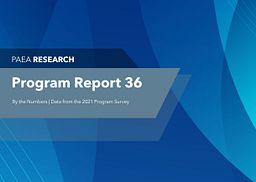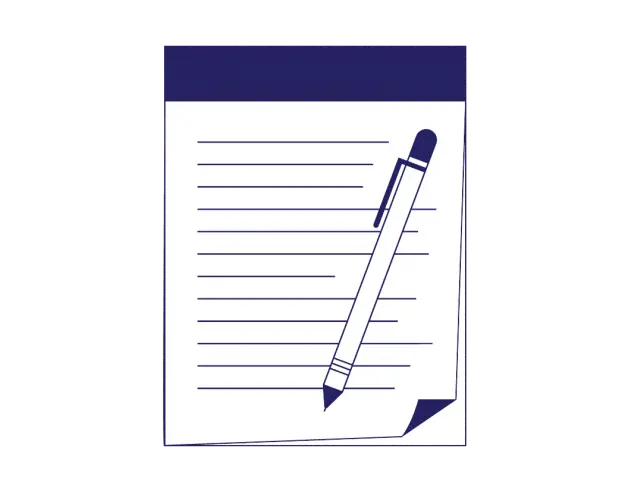- Public Resources
- Publishing Your Dissertation in a…

Publishing Your Dissertation in a Scholarly Journal
So you’ve decided you want to earn a PhD. You have read about the road blocks , you’ve selected your committee, and you’ve started writing your dissertation. But why start thinking about a publication? What does that have to do with earning the ultimate degree?
Writing a dissertation without a publication is like going to the trouble of making a cake but not baking it. No one can taste your cake, no one can benefit from your hard work—of course, no one can criticize your work either. But without a publication, or two or three, the dissertation is not technically a total success. You’d be amazed at how many people don’t get a publication out of their dissertation. Without advanced planning, a publication likely won’t happen, because, once again, there are often unanticipated roadblocks.
1. Publication will be completely driven by you and no one else. A publication will not be on the priority list of your dissertation committee. And you will likely be the only one to understand where to publish.
2. Planning is the most important step and the only way to be successful. If you wait until after you go through the dissertation process, you will be too exhausted to publish, and it won’t happen for a year or two. You must plan.
3. Configure your dissertation for three separate publications. This may be three separate chapters, or it may be three different data sets or arms of your data. Link this to the selection of your committee. In my previous articles, I recommended choosing a committee wisely, with different members being associated with different jobs. Committee members should not have similar areas of expertise. Their “jobs” should not overlap. There should be a content expert or literature review expert, a methods person, a results person and a “whip.” Ideally, the “whip” (think politics, as in majority whip or minority whip in Congress) is your dissertation chair. The jobs of each member should be distinct to avoid having members fighting or making conflicting suggestions. Each article should be aligned with a separate expert. So there can be a Review article, a Methods article, and a Results article.
4. You get to decide who is listed as an author on your articles. You will be first author, and your mentor should be last author (a position of honor). If a committee member does not contribute, they ethically should not be included in the list of authors. Many journals now ask you to list the authors along with their meaningful contributions.
5. Decide ahead of time the journals in which you wish to publish. Full disclosure — I am on the board of the Journal of the American Academy of PAs (JAAPA), and I’m a reviewer for the Journal of Physician Assistant Education (JPAE). I’m going to recommend these PA journals for one of your publications. Here is my pitch (although biased): We are THE scholarly journals for the profession. If your data is completely focused on PA education, then select JPAE. Think about JAAPA for any research on PAs themselves or PA analogues. Select a PA journal for a personal touch and some really important feedback. Your article will be on a stage with your peers. This gives you the home crowd advantage.
6. Lose ownership. Remember how I said your dissertation is like your baby? Well, your baby now has gone through elementary school and the tumultuous teenage years and currently is entering college. Your publication needs you to back off and give it some space. It will leave home for a while (often for the long review process). When it comes back, it might need to do some laundry, but it should essentially not look at all like the baby you once knew. A publication should look like a publication, not a dissertation. It should be neat and mature and all grown up.
7. Try for the highest level journal you can realistically get published in. Here is the main problem: time. You cannot ethically submit the same article to multiple journals. You will need to make sure you have three completely separate articles in order to submit to multiple journals. There are many people who believe you should publish in the most prestigious journal you can make it into. I do not disagree with this philosophy; however, the alternative is that your work might not get read in a higher scholarly journal because PAs and PA educators don’t tend to read these other journals. This is for you to decide. There are websites that can help you determine where to publish. But be careful and check out Beall’s List, a list of potentially predatory “scholarly” open-access publishers.
8. Best of luck — and don’t fail to publish. Don’t bake your cake and not put it in the oven. Remember to reach out to your peers within the profession to aid in your success. Ultimately, your committee will be pleased to add a publication to their CVs. They will remember this as their reward for all the hard work that they (and you) put into your PhD.
A publication is the lasting legacy for all of your tough efforts and sacrifice. It is the “so what” of all you have put into this academic Mt. Everest. Consider the impact that your work will have on the profession. Don’t run the marathon (or climb the mountain) and not cross the finish line!
Jennifer Coombs, PhD, MPAS, PA-C
Related news & alerts.

The Numbers Are In: PAEA Announces the Release of Program Report 36

Don Pedersen Awardees Address Student Performance and Well-Being

Fellows Share Research at Forum

Charles R. Drew University PD Finds Rewards in Health Disparities Research
- Link to facebook
- Link to linkedin
- Link to twitter
- Link to youtube
- Writing Tips
The Ultimate Guide to Getting Your Thesis Published in a Journal

- 7-minute read
- 25th February 2023
Writing your thesis and getting it published are huge accomplishments. However, publishing your thesis in an academic journal is another journey for scholars. Beyond how much hard work, time, and research you invest, having your findings published in a scholarly journal is vital for your reputation as a scholar and also advances research findings within your field.
This guide will walk you through how to make sure your thesis is ready for publication in a journal. We’ll go over how to prepare for pre-publication, how to submit your research, and what to do after acceptance.
Pre-Publication Preparations
Understanding the publishing process.
Ideally, you have already considered what type of publication outlet you want your thesis research to appear in. If not, it’s best to do this so you can tailor your writing and overall presentation to fit that publication outlet’s expectations. When selecting an outlet for your research, consider the following:
● How well will my research fit the journal?
● Are the reputation and quality of this journal high?
● Who is this journal’s readership/audience?
● How long does it take the journal to respond to a submission?
● What’s the journal’s rejection rate?
Once you finish writing, revising, editing, and proofreading your work (which can take months or years), expect the publication process to be an additional three months or so.
Revising Your Thesis
Your thesis will need to be thoroughly revised, reworked, reorganized, and edited before a journal will accept it. Journals have specific requirements for all submissions, so read everything on a journal’s submission requirements page before you submit. Make a checklist of all the requirements to be sure you don’t overlook anything. Failing to meet the submission requirements could result in your paper being rejected.
Areas for Improvement
No doubt, the biggest challenge academics face in this journey is reducing the word count of their thesis to meet journal publication requirements. Remember that the average thesis is between 60,000 and 80,000 words, not including footnotes, appendices, and references. On the other hand, the average academic journal article is 4,000 to 7,000 words. Reducing the number of words this much may seem impossible when you are staring at the year or more of research your thesis required, but remember, many have done this before, and many will do it again. You can do it too. Be patient with the process.
Additional areas of improvement include>
· having to reorganize your thesis to meet the section requirements of the journal you submit to ( abstract, intro , methods, results, and discussion).
· Possibly changing your reference system to match the journal requirements or reducing the number of references.
· Reformatting tables and figures.
· Going through an extensive editing process to make sure everything is in place and ready.
Identifying Potential Publishers
Many options exist for publishing your academic research in a journal. However, along with the many credible and legitimate publishers available online, just as many predatory publishers are out there looking to take advantage of academics. Be sure to always check unfamiliar publishers’ credentials before commencing the process. If in doubt, ask your mentor or peer whether they think the publisher is legitimate, or you can use Think. Check. Submit .
If you need help identifying which journals your research is best suited to, there are many tools to help. Here’s a short list:
○ Elsevier JournalFinder
○ EndNote Matcher
○ Journal/Author Name Estimator (JANE)
○ Publish & Flourish Open Access
· The topics the journal publishes and whether your research will be a good fit.
Find this useful?
Subscribe to our newsletter and get writing tips from our editors straight to your inbox.
· The journal’s audience (whom you want to read your research).
· The types of articles the journal publishes (e.g., reviews, case studies).
· Your personal requirements (e.g., whether you’re willing to wait a long time to see your research published).
Submitting Your Thesis
Now that you have thoroughly prepared, it’s time to submit your thesis for publication. This can also be a long process, depending on peer review feedback.
Preparing Your Submission
Many publishers require you to write and submit a cover letter along with your research. The cover letter is your sales pitch to the journal’s editor. In the letter, you should not only introduce your work but also emphasize why it’s new, important, and worth the journal’s time to publish. Be sure to check the journal’s website to see whether submission requires you to include specific information in your cover letter, such as a list of reviewers.
Whenever you submit your thesis for publication in a journal article, it should be in its “final form” – that is, completely ready for publication. Do not submit your thesis if it has not been thoroughly edited, formatted, and proofread. Specifically, check that you’ve met all the journal-specific requirements to avoid rejection.
Navigating the Peer Review Process
Once you submit your thesis to the journal, it will undergo the peer review process. This process may vary among journals, but in general, peer reviews all address the same points. Once submitted, your paper will go through the relevant editors and offices at the journal, then one or more scholars will peer-review it. They will submit their reviews to the journal, which will use the information in its final decision (to accept or reject your submission).
While many academics wait for an acceptance letter that says “no revisions necessary,” this verdict does not appear very often. Instead, the publisher will likely give you a list of necessary revisions based on peer review feedback (these revisions could be major, minor, or a combination of the two). The purpose of the feedback is to verify and strengthen your research. When you respond to the feedback , keep these tips in mind:
● Always be respectful and polite in your responses, even if you disagree.
● If you do disagree, be prepared to provide supporting evidence.
● Respond to all the comments, questions, and feedback in a clear and organized manner.
● Make sure you have sufficient time to make any changes (e.g., whether you will need to conduct additional experiments).
After Publication
Once the journal accepts your article officially, with no further revisions needed, take a moment to enjoy the fruits of your hard work. After all, having your work appear in a distinguished journal is not an easy feat. Once you’ve finished celebrating, it’s time to promote your work. Here’s how you can do that:
● Connect with other experts online (like their posts, follow them, and comment on their work).
● Email your academic mentors.
● Share your article on social media so others in your field may see your work.
● Add the article to your LinkedIn publications.
● Respond to any comments with a “Thank you.”
Getting your thesis research published in a journal is a long process that goes from reworking your thesis to promoting your article online. Be sure you take your time in the pre-publication process so you don’t have to make lots of revisions. You can do this by thoroughly revising, editing, formatting, and proofreading your article.
During this process, make sure you and your co-authors (if any) are going over one another’s work and having outsiders read it to make sure no comma is out of place.
What are the benefits of getting your thesis published?
Having your thesis published builds your reputation as a scholar in your field. It also means you are contributing to the body of work in your field by promoting research and communication with other scholars.
How long does it typically take to get a thesis published?
Once you have finished writing, revising, editing, formatting, and proofreading your thesis – processes that can add up to months or years of work – publication can take around three months. The exact length of time will depend on the journal you submit your work to and the peer review feedback timeline.
How can I ensure the quality of my thesis when attempting to get it published?
If you want to make sure your thesis is of the highest quality, consider having professionals proofread it before submission (some journals even require submissions to be professionally proofread). Proofed has helped thousands of researchers proofread their theses. Check out our free trial today.
Share this article:
Post A New Comment
Got content that needs a quick turnaround? Let us polish your work. Explore our editorial business services.
2-minute read
How to Cite the CDC in APA
If you’re writing about health issues, you might need to reference the Centers for Disease...
5-minute read
Six Product Description Generator Tools for Your Product Copy
Introduction If you’re involved with ecommerce, you’re likely familiar with the often painstaking process of...
3-minute read
What Is a Content Editor?
Are you interested in learning more about the role of a content editor and the...
4-minute read
The Benefits of Using an Online Proofreading Service
Proofreading is important to ensure your writing is clear and concise for your readers. Whether...
6 Online AI Presentation Maker Tools
Creating presentations can be time-consuming and frustrating. Trying to construct a visually appealing and informative...
What Is Market Research?
No matter your industry, conducting market research helps you keep up to date with shifting...

Make sure your writing is the best it can be with our expert English proofreading and editing.

How to Turn Your Thesis Into a Journal Article
In many cases, publishing thesis is often one of the requirements for graduate students to finish their academic program. Publishing research findings is one of the more important ways to share research data with the scientific community. However, the structure of it is different from that of a research article. In this article, we shall discuss how to turn your thesis to journal article.
Characteristics of a Thesis and a Journal Article
Differences between a thesis and a journal article.
While both contain similar sections, you cannot simply publish your thesis research as a journal article. Converting it into a journal article has many steps. It is important to recognize that an article is much shorter than the thesis. However, turning your thesis into a journal article will not be a simple matter of copy and paste. You will need to use the data in your thesis as the starting point for writing your article.
Related: Planning to publish your Ph.D. research in a good journal? Check these journal selection guidelines now!
The many differences between a thesis research and a journal article are as follows:
- A thesis meets academic requirements while a journal article meets journalistic standards.
- The abstract of an article is usually shorter than that of a thesis.
- The introduction in a thesis is used to show that you are familiar with the literature in your chosen field. In a research paper , the introduction is much shorter as it is assumed that your target audience is familiar with the necessary background to understand your work. The introduction to your paper will, therefore, focus more on setting the stage for the data/research output that you are about to present.
- The results section in a thesis will include all your findings. In a paper, this would be too much detail. The data in this section should be only what you need to support your research problem or hypothesis. Often, the results in former may represent two to three different papers.
- The discussion in your paper will be much more focused than in your thesis. It will be guided by the results presented in the paper. Finally, only citations of articles actually mentioned in your paper will be listed in the references section.
Turning Thesis Research to Journal Article
As a researcher, you need to publish your work to advance your career and make contributions to the research field. Now that the differences have been outlined, how do you actually write one?
1. Identify a Suitable Journal
You could start by journal selection . Look at your reference list. Chances are at least some of the papers you read were published in journals whose scope would match your work. Selecting a journal also allows you to tailor the paper to the specific requirements of that journal. Ensure that your research article coincides with the aim and scope of the journal. Understand the journal’s guidelines, recommended manuscript structure, and reference style
2. Reduce Redundant Length of Your Thesis
An important aspect of turning your thesis research to journal article is focusing on the word count without deleting crucial information. In order reduce word count , extract the data that answers just one research question. This should result in a more focused information than your thesis research presented. Discuss results in context with your problem statement-that is the focus of your paper. Good language and structure are crucial – your paper may get rejected even though it contains valuable data if it is difficult to understand. Use your data to tell a coherent story and avoid sweeping conclusions your data cannot support. Ensure that your title matches the contents of your paper. Paraphrase the content without changing the meaning.
3. Modify Introduction as Abstract
Repurpose the introduction as an abstract by shortening your thesis introduction to 100-150 words. Remember to maintain key points of the introduction to hold the reader’s attention. Formulate the introduction and discussion of thesis as basis for the journal article’s abstract. Furthermore, consider combining multiple research questions or focus on just one for the journal article.
4. Focus on Relevant and Selective Information
Since the discussion, methods and methodology, and results section of your thesis is an in-detail explanation of your research, these sections must be kept short while writing in a journal article. Familiarize yourself with the target journal’s standards by referring previously published papers and understanding their format. Most importantly, provide interpretation of main findings in the results section in concise statements or tabular formats. Avoid repeating your results in the discussion section. However, discuss how your findings expand and support previous perspectives of the research. Finally, mention how future studies can build upon your work and address limitations in your study.
5. Limit the Number of References
As your thesis is a work of several years put together, it involves numerous literature reviewing. However, while turning your thesis to journal article, you must include only limited references that are relevant to the research question addressed in the journal article. Focus on using most recent references. Consider using reference management tools such as Zotero, Mendeley, Quiqqa, etc. to make the referencing process easier and efficient.
It is an academic requirement that you publish your data for the benefit of the scientific community. Considering that the structure of journal article is different from the structure of a thesis, turning a thesis to journal article must be done following logical steps as mentioned above.
Did you ever have to convert your thesis to journal article? How did you plan it? What strategies did you use while reducing the word count of your thesis? Let us know in the comments section below! You can also visit our Q&A forum for frequently asked questions related to different aspects of research writing and publishing answered by our team that comprises subject-matter experts, eminent researchers, and publication experts.
I was Searching For This From So Many days. Thank you for Sharing
Thanks! Glad you liked it.
Are we also going to talk Code of Conduct in Research, as authorship is part of the conduct (ethics)?
Regards, Elvia

I guess you are referring to our upcoming webinar on Assigning Authorship & Contributorship | Tips for Researchers. We will be discussing the ethical dilemmas in authorship during the session.
We would request you to register and attend the webinar for additional insights on this topic.
Meanwhile, we would recommend you to share your queries with us on our FREE Q&A forum . In addition, you may download our FREE mobile app to stay updated on the latest resources in research writing and academic publishing.
What about the Topic? we need to rephrase the topic or keep it same with Thesis topic?
Hi Shahid, Thank you for your question. Your thesis topic would be a cumulative title for all the chapters described in your thesis. When you publish your thesis as a journal article, every chapter would be published as an individual article in most cases. You may or may not use the same title that you have used for that particular chapter in the thesis. Your thesis would have chapter names that are more suited to the overall objective of your thesis. On the other hand, your manuscript should ideally have a catchy and search-optimized title highlighting a general perspective. It may not be the same as your thesis title. However, if your thesis chapter title meets the requirement of the manuscript you intend to publish, you can go ahead with the same.
You could also go through our articles on writing good research paper titles: https://www.enago.com/academy/top-10-tips-on-choosing-an-attractive-research-title/ https://www.enago.com/academy/writing-a-good-research-title-things-to-avoid/ https://www.enago.com/academy/write-irresistible-research-paper-title/
Did you get a chance to install our FREE mobile app . Make sure you subscribe to our weekly newsletter: https://www.enago.com/academy/subscribe-now/ .
Hi Dr. Durga, Amazing article and I am sure it will surely help the writers to write more carefully and also plagiarised free.
Greeting from Enago Academy! Thank you for your positive comment. We are glad to know that you found our resources useful. Your feedback is very valuable to us. Happy reading!
i just read the article and also the comments section it’s so helpful. thank you so much for sharing it.. good work!
Thanks a lot for this informational blog which surely going to help the students pursuing the Phd. Nowdays due to assignment burden students started taking the help of professional academic experts. There are many writing services.
Thank you for the very useful article. I will definitely look into it.
Writing a book: needed advice and help at one point. I found enago academy in my search of Answers. You were a Great Help! I hope to use your services again, if I am stuck on correct writing principles! Thank You for being here. K.R. Plante
This helped me a lot; thank you for this informative article.
Thanks for writing such an informative blog which will surely be a great help for the students as well as the institutions
Great article! One question…. should I cite the thesis in the paper? If so, how do I do that efficiently since it would be all over the place?
good, insightful piece of text.
Rate this article Cancel Reply
Your email address will not be published.

Enago Academy's Most Popular Articles

- Career Corner
- Trending Now
Recognizing the signs: A guide to overcoming academic burnout
As the sun set over the campus, casting long shadows through the library windows, Alex…

- Diversity and Inclusion
Reassessing the Lab Environment to Create an Equitable and Inclusive Space
The pursuit of scientific discovery has long been fueled by diverse minds and perspectives. Yet…

- AI in Academia
- Reporting Research
How to Improve Lab Report Writing: Best practices to follow with and without AI-assistance
Imagine you’re a scientist who just made a ground-breaking discovery! You want to share your…

Achieving Research Excellence: Checklist for good research practices
Academia is built on the foundation of trustworthy and high-quality research, supported by the pillars…

- Promoting Research
Concept Papers in Research: Deciphering the blueprint of brilliance
Concept papers hold significant importance as a precursor to a full-fledged research proposal in academia…
How to Improve Lab Report Writing: Best practices to follow with and without…
8 Effective Strategies to Write Argumentative Essays
Writing a Research Literature Review? — Here are tips to guide you through!
How to Develop a Good Research Hypothesis

Sign-up to read more
Subscribe for free to get unrestricted access to all our resources on research writing and academic publishing including:
- 2000+ blog articles
- 50+ Webinars
- 10+ Expert podcasts
- 50+ Infographics
- 10+ Checklists
- Research Guides
We hate spam too. We promise to protect your privacy and never spam you.
I am looking for Editing/ Proofreading services for my manuscript Tentative date of next journal submission:

What should universities' stance be on AI tools in research and academic writing?

Revising Your Dissertation for Publication
While a dissertation’s in-depth research and analysis can provide a strong foundation for a book, the dissertation itself is not a book and will not be published by an academic press without substantial revisions. Some acquisitions editors are interested first books, especially if they bring new perspectives and fresh ideas to a field, while others do not often publish first books. If you are considering submitting your dissertation for publication, we recommend that you contact editors at university presses that publish in your subject area for guidance on revising your work. Many editors prefer to be involved in the early stages of this process so they can advise you on how to structure the book and your arguments to create a publishable book. Editors generally require changes in the length, content, tone, and style of a dissertation in order to produce a book that will appeal to buyers in the academic market. Read more about submitting a proposal in our Scholarly Publishing Guide .
Below are selected resources to help you revise your dissertation for publication as a book or journal article(s).
Advice from publishers
- Harvard University Press
- Palgrave Macmillan
- Rowman & Littlefield
- Taylor & Francis
- University of North Carolina Press
- Yale University Press
- Publisher Policies on using content in both a thesis or dissertation and an article (from MIT Libraries)
- From Dissertation to Book by William Germano (Lauinger Library, 4th Floor, PN162 .G37 2013)
- Revising Your Dissertation, Updated Edition : Advice from Leading Editors (updated edition, 2008) edited by Beth Luey (online; GU NetID and password required)
- From Dissertation to Book , Duke University (February 27, 2018)
- From Dissertation to Book ( full transcript ), Harvard University (December 17, 2010)
- How To Turn Your Dissertation into a Book , Yale University (April 6, 2016)
- From Dissertation to Book by Leonard Cassuto (Chronicle of Higher Education, May 30, 2011)
- From Dissertation to Published Book (lanugageandphilosophy.com report on an American Comparative Literature Association workshop)
- Give It a Rest by Laura Portwood-Stacer (Inside Higher Ed, August 6, 2019)
- The Stages of Revising a Dissertation into a Book by Amy Benson Brown (Journal of Scholarly Publishing, vol. 52 no. 2, 2021, p. 127-140) (GU NetID and password required)
- Turning Your Dissertation into a Book (University of Washington)
- Publishing your Dissertation (American Psychological Association)

How to Publish a Dissertation or Thesis

Deciding Whether to Publish
Most importantly, take an objective look at your own paper and how you feel towards it. If you have become burned out or have lost passion for this subject, you probably shouldn’t consider publishing your thesis or dissertation right away. While the initial writing phase takes massive amounts of your time and energy, the process of how to publish a dissertation may involve as much or even more of your time revisiting every aspect of your paper. Also, it might not be worth your time if you have decided not to pursue a career in the academic or research field. Finally, could you honestly see other peers in your field wanting to buy your paper? Take a look online to see what kind of interest other papers similar to yours are drawing from academics.
Book or Journal Publication?
By now, you have probably become very familiar with the difference between scholarly publications as presented in an entire book or periodical form. However, first you should talk to several peers who have experience on how to publish a dissertation of their own. Seek out those on your thesis or dissertation committee, currently or formerly published authors, and your professors about the pros and cons of pursuing a book deal or journal publication. In general, scientific and psychological articles are published in periodic journals, as new information in these fields can be important in the here and now for colleagues and therefore time sensitive. On the other hand, cultural and historic studies are better suited for book publications, as these kinds of fields are about fully informing the reader on the subject and would only interest those in a very specific field who would want to purchase the material. Lastly, consider the length of your work, as this can play a role in your decision.
Publisher Relations
Take some time to research the publishers out there and consider what companies are publishing works that are most similar to your own. Keep in mind that the most generic publishers don’t often delve into research, so stick to academic publishers. After you have sent out a brief synopsis of your work to several companies, wait four to six months before seriously considering signing with a specific company. Many of these publishers review thousands of aspiring writers’ papers every year, so be patient when waiting to hear back.
Click here to cancel reply.
You must be logged in to post a comment.
Copyright © 2024 PhDStudent.com. All rights reserved. Designed by Divergent Web Solutions, LLC .
- Directories
- Access Decisions
- Change Requests
- Publishing Your ETD
- Using Previously Published Work in ETDs
- Use of Images in ETDs
- ETD Formatting
- Scholarly Publishing and Open Access
- Start Your Research
- Research Guides
- University of Washington Libraries
- Library Guides
- UW Libraries
- Electronic Theses and Dissertations (ETDs)
Electronic Theses and Dissertations (ETDs): Publishing Your ETD
Publishing an etd, will journal or book publishers consider publishing my work if it is based on an open access thesis or dissertation.
Yes. Publisher policies and practices within disciplines do vary, but recent surveys of journal editors showed that about 80% or more of journal editors in the sciences and the humanities and social sciences would "always welcome" article submissions based on open access ETD's, or would consider them on a case by case basis or if they were "substantially different" from them. A similar proportion of university presses surveyed would consider publishing a book based on one. In part, this is because most publishers consider theses and dissertations to be "student work" that will require substantial editing and revision before being published in article or book form. Publishers say that they are more interested in the quality of the work and an author's willingness to edit as needed than they are in whether the work has previously appeared in another form
- Elsevier Elsevier recently clarified its position on prior publications, affirming that theses are welcome for submission.
- Springer Springer also makes an exception for theses in what it considers to be prior publication.
What do I need to do if I am planning to submit my work to a publisher?
The first thing is to check SHERPA/RoMEO to see what your journal's self-archiving policy is. If they allow self-archiving, you're all set. If they don't have a policy explicitly allowing self-archiving or sharing, it's important that your editor be aware that your work is part of your ETD and will be openly available if it is not already. In most cases, editors are completely fine with an ETD being available online. In some cases, an editor may ask you to adjust your access levels so that open access is delayed.
Including a publication in an ETD
Can i use previously published articles of my own in my work.
It depends. Assuming that you conveyed the copyright of your work to the publisher you need to see if the publisher allows it.
SHERPA/RoMEO is a good starting point for finding your publisher's policy. Alternately, simply google ' [Your publisher] self archiving policy" or " [Your publisher] sharing policy."
As of Fall 2011 most major publishers indicated on their web pages that a previously published article could be included in a thesis or dissertation. If they do not allow it, you'll need to get special permission.
How do I get permission if I need it?
You will need to contact the editor you worked with to publish your work. If you don't have their contact information, you can contact the publisher directly. A draft permissions letter is available from ProQuest on pages 3 and 4. Contact library staff to determine the publisher of a journal and obtain contact information.
How do I acknowledge the status on my ETD's copyright page?
The second section of all theses and dissertations is required to be a Copyright Page that follows the Graduate School's formatting requirements. If you have transferred copyright to any part of your thesis you need to identify the correct rights holder on this page. Check with your department to see if they have guidelines on how this should be structured. If they do not, one way to do this is to identify each section's rights holder individually, and then state that you retain copyright to 'All other materials', such as the following:
Chapter 1 © Copyright 2016 Springer Nature Chapter 2 © Copyright 2017 American Historical Review All other materials © Copyright 2018 Jane Student
Decisionmaking Flowchart

- << Previous: Change Requests
- Next: Using Previously Published Work in ETDs >>
- Last Updated: Mar 27, 2024 10:06 AM
- URL: https://guides.lib.uw.edu/research/etds
University of Houston Libraries
Scholarly publishing, where to begin.
Thinking about transforming your dissertation into your first book? Hardly any dissertations are published as books without significant work on the author's part to refocus the manuscript for an audience beyond the dissertation committee.
Here are a few resources to help you understand the process of reworking a dissertation for publication as a monograph:
- Dear First-Time Author: How to Turn Your Dissertation Into a Book, by Theresa MacPhail MacPhail shares advice from writing her own first book as well as advice from editors at university presses.
In reading some of the resources listed above, you might encounter discussions of how having your dissertation available online (for example, in the UH Institutional Repository ) could negatively impact a publisher's willingness to look at your manuscript. Some authors assert that you should not put your dissertation online if you hope to sign a publishing contract. However, please note there is very little evidence to support this view. In fact, research has shown that publishers will indeed consider manuscripts that are revised versions of openly-accessible dissertations.
- Do Open Access Electronic Theses and Dissertations Diminish Publishing Opportunities in the Social Sciences and Humanities? Findings from a 2011 Survey of Academic Publishers, by Ramirez, et al.
The dissertation to monograph process is particular to the individual and their field. UH librarians can help talk through the process that is common to your field and how you can get started. Please contact the Director of the Digital Research Commons, Taylor Davis-Van Atta to schedule a consultation.
- << Previous: Monograph Publisher Contracts or Agreements
- Next: Copyright >>
- Find Information for a Journal
- Journal Finder or Matcher
- Advice from Publishers & Practitioners
- Publishing with Open Access Journals
- Sharing on Preprint Servers
- Monograph Publisher Contracts or Agreements
- From Dissertation to Monograph
- Reference Managers
- Last Updated: Dec 16, 2022 8:56 AM
- URL: https://guides.lib.uh.edu/scholarly_publishing
Cookies on this website
We use cookies to ensure that we give you the best experience on our website. If you click 'Accept all cookies' we'll assume that you are happy to receive all cookies and you won't see this message again. If you click 'Reject all non-essential cookies' only necessary cookies providing core functionality such as security, network management, and accessibility will be enabled. Click 'Find out more' for information on how to change your cookie settings.

Turning your MSc dissertation into an academic paper

Anne-Marie Boylan
23 May 2019
Tips for students
Students who complete the MSc in Evidence Based Health Care at the University of Oxford often produce high quality research for their dissertation, which we encourage them to publish in academic journals. Dr Anne-Marie Boylan is the Dissertation Coordinator for the MSc in EBHC. She spoke to Mark Howe, a dentist who recently completed his MSc about his experiences of writing up his MSc thesis for publication in the Journal of Dentistry.
What challenges did you face in getting your thesis published?
I found condensing the dissertation down to meet the word count required for the journal whilst maintaining all the important points was a big challenge. This took a substantial amount of time and quite a lot of editing. I also faced lots of challenges because of what was required in the submission process. The formatting the journal required for tables and figures was different to what I had created for my thesis. They didn’t always convert cleanly when uploaded, which took some time to identify and correct. Despite all my efforts to ensure I followed the guidelines for authors, the manuscript was returned immediately due to issues with format changes and missing entries. But I got there in the end.
What did you think about the reviewers’ feedback?
The initial comments ranged from just basic proof-reading corrections to what felt like quite extensive criticism. So you need to be prepared for frustration and rejection. The publication process assumes you work in a close-knit experienced team where there is access to people who have published before, which isn’t always the case for MSc students.
The reviewers asked for amendments to what I thought were very important aspects of the research. I saw this an opportunity to argue that these data should not be changed.
How did you feel when your article was accepted?
I felt relief rather than joy as the profession now had to accept there were some weaknesses in their previous robust results. Getting the dissertation published was for me the true endpoint of the MSc in evidence-based healthcare as my research was now going into the public domain. I was surprised to see how expensive it was to make my paper ‘Open Access’. I had no funding for this so it’s behind a pay wall.
What would you say to other students who are preparing their thesis for publication?
Choose your journal carefully.
Be patient – the submission process is more experiential than intuitive. Try and get some advice from colleagues who have published more papers in your field.
Be prepared to defend your research against the reviewer’s comment where necessary. Try not to take the reviewers comments personally. Maintain a calm perspective, and possibly leave the manuscript for a few days before working through the corrections.
Mark’s paper can be accessed using the following reference : Howe, M.-S., Keys, W. and Richards, D. (2019) ‘Long-term (10-year) dental implant survival: A systematic review and sensitivity meta-analysis’, Journal of Dentistry. Elsevier B.V., 84(March), pp. 9–21. doi: 10.1016/j.jdent.2019.03.008.
Read Mark’s blog summarising his research findings here.
What to read next
'rejection is part of the process'.
22 July 2019
EBHC programmes Students
Rejection is part of the process: Turning your dissertation into an academic paper
Academic Publishing

How to Get Your Dissertation Published in the UK

Congratulations on completing your dissertation! It is a great achievement, and now it is time to share your research with the rest of the world by publishing it. Publishing your dissertation in the UK can be a significant step in your academic career.
It can also be a daunting task if you are not familiar with the process. In this article, we will guide you through the 8 steps and at the end of it, you will master how to get your dissertation published in the UK.
Choose a Publisher When Publishing Dissertation
The first step in publishing your dissertation is to choose a publisher. You can consider publishing with an academic publisher or a university press. Make sure to choose a reputable publisher with experience in your field of study.
Lambert Academic Publishing is a reputable publisher that specializes in publishing dissertations and scholarly books. We offer a wide range of services to help you publish your dissertation, including marketing. All you need is to check the steps on how to publish with us .
Check the Publisher’s Submission Guidelines
Once you have chosen a publisher, check their submission guidelines carefully. This will help you understand what the publisher is looking for and how to format your manuscript accordingly. Some publishers have specific formatting requirements, so make sure you follow them closely.

Prepare your Manuscript
Before submitting your manuscript, you need to prepare it for publication. This involves proofreading and editing your work, making sure that it adheres to the submission guidelines, and creating an abstract and a table of contents. You may also need to format your references and citations in a specific style.
Submit your Manuscript
Once your manuscript is ready, you can submit it to the publisher. Most publishers have an online submission system , so make sure you follow the instructions carefully. You may also need to submit a cover letter and a CV.
Wait for the Peer-Review Process
After you submit your manuscript, it will go through a peer-review process. This is where experts in your field of study review your work and provide feedback. The review process can take several weeks to several months, depending on the publisher.
Revise Your Manuscript
If your manuscript is accepted for publication, you will need to revise it based on the feedback you received during the peer-review process.
This may involve:
- rewriting certain sections;
- adding more data or references;
- making other necessary changes.
Publish now!

Sign a Publishing Contract
Once your manuscript is revised and accepted, you will need to sign a publishing contract with the publisher. This contract will outline the terms of your agreement, including the publication timeline, royalties, and copyright.

Publish Your Dissertation
Finally, your dissertation will be published! Depending on the publisher, your dissertation may be published as a book , an e-book, or an article in a journal. Make sure to celebrate this accomplishment and share your work with your colleagues and peers.
In conclusion, publishing your dissertation in the UK can be a rewarding and challenging experience. Make sure to choose a reputable publisher, follow the submission guidelines closely, and prepare your manuscript carefully.
Remember that the peer-review process can take time, so be patient and be prepared to make revisions. With perseverance and hard work, you can successfully publish your dissertation and contribute to your field of study.
What are the Benefits of Publishing Your Dissertation in the UK?

The Significance of Publishing Your Dissertation
You’ve invested countless hours into your dissertation, and completing it is a remarkable achievement. However, what’s next? Have you ever considered publishing your dissertation in the UK? In this article, we’ll explore the numerous benefits of taking this step.
Enhancing Your Academic Visibility
Publishing your dissertation is more than just a formality, it’s a significant accomplishment. It demonstrates that you’ve conducted original research and contributed new knowledge to your field. Sharing your findings allows you to take pride in your hard work and benefit others who can learn from your research.
Establishing Expertise and Reputation
Publishing your dissertation can significantly boost your visibility in the academic community. It helps you establish yourself as an authority in your field, a valuable asset when applying for academic positions or research grants. Moreover, publishing increases the likelihood of being cited in future research, further elevating your academic reputation.

Unlocking New Research Opportunities
Another compelling advantage of publishing your dissertation is the potential for new research opportunities. Sharing your work enables you to connect with fellow researchers who may be interested in collaborating with you or expanding upon your findings.
This can lead to exciting research projects and opportunities for further knowledge and expertise development.
Honing Crucial Skills
Publishing your dissertation is a learning journey that hones essential skills. It involves receiving feedback and revising your work accordingly. This iterative process enhances your writing skills and your ability to articulate ideas effectively. Furthermore, it continues to develop your critical thinking skills, which are vital in navigating the publishing process.
Achieving Academic Closure
Lastly, publishing your dissertation offers a sense of closure to your academic journey. After years of dedicated effort, seeing your research in print and knowing it contributes to your field can be incredibly rewarding.
In conclusion, publishing your dissertation in the UK offers a host of valuable benefits, including increased visibility, research opportunities, skill development, and a sense of accomplishment. Most importantly, it enables you to share your hard-earned research with the broader academic community.
Don’t hesitate to consider taking the next step and sharing your valuable research with the world.

Exploring Publishing Opportunities with Lambert Academic Publishing
Are you a researcher or author wondering how to publish your undergraduate dissertation or master’s dissertation ? Lambert Academic Publishing is your solution! Our streamlined, cost-effective publishing process allows you to share your research with a global audience.
With no publishing contract required and comprehensive editing and formatting services included, publishing your thesis with us has never been easier. Plus, our extensive worldwide distribution network ensures that your work reaches a broader audience.
Don’t let your research go unnoticed.
Leave a Comment Cancel Reply
Your email address will not be published. Required fields are marked *
Save my name, email, and website in this browser for the next time I comment.
Featured Clinical Reviews
- Screening for Atrial Fibrillation: US Preventive Services Task Force Recommendation Statement JAMA Recommendation Statement January 25, 2022
- Evaluating the Patient With a Pulmonary Nodule: A Review JAMA Review January 18, 2022
- Download PDF
- Share X Facebook Email LinkedIn
- Permissions
Clinical Benefit and Regulatory Outcomes of Cancer Drugs Receiving Accelerated Approval
- 1 Program on Regulation, Therapeutics, and Law, Division of Pharmacoepidemiology and Pharmacoeconomics, Department of Medicine, Brigham and Women’s Hospital and Harvard Medical School, Boston, Massachusetts
- Original Investigation Therapeutic Value of Drugs Granted Accelerated Approval or Conditional Marketing Authorization Kerstin N. Vokinger, MD, JD, PhD, LLM; Aaron S. Kesselheim, MD, JD, MPH; Camille E. G. Glaus, BSc, JD, LLM; Thomas J. Hwang, MD JAMA Health Forum
- Research Letter Exposure to Cancer Drugs Without Confirmed Benefit After FDA Accelerated Approval Ravi B. Parikh, MD, MPP; Rebecca A. Hubbard, PhD; Erkuan Wang, MA; Trevor J. Royce, MD, MPH; Aaron B. Cohen, MD, MSCE; Amy S. Clark, MD, MSCE; Ronac Mamtani, MD, MSCE JAMA Oncology
- Research Letter Time to Confirmatory Study Initiation After Accelerated Approval of Drugs in the US Shelley A. Jazowski, PhD, MPH; Avi U. Vaidya, MPH; Julie M. Donohue, PhD; Stacie B. Dusetzina, PhD; Rachel E. Sachs, JD, MPH JAMA Internal Medicine
- Original Investigation NCCN Recommendations of Cancer Drugs Edward R. Scheffer Cliff, MBBS, MPH; Rachel S. Rome, MD; Aaron S. Kesselheim, MD, JD, MPH; Benjamin N. Rome, MD, MPH JAMA Network Open
Question What is the clinical benefit of cancer drugs granted accelerated approval, and on what basis are they converted to regular approval?
Findings In this cohort study of cancer drugs granted accelerated approval from 2013 to 2017, 41% (19/46) did not improve overall survival or quality of life in confirmatory trials after more than 5 years of follow-up, with results not yet available for another 15% (7/46). Among drugs converted to regular approval, 60% (29/48) of conversions relied on surrogate measures.
Meaning Although accelerated approval can be useful, some cancer drugs do not end up demonstrating benefit in extending patients’ lives or improving their quality of life.
Importance The US Food and Drug Administration’s (FDA) accelerated approval pathway allows approval of investigational drugs treating unmet medical needs based on changes to surrogate measures considered “reasonably likely” to predict clinical benefit. Postapproval clinical trials are then required to confirm whether these drugs offer clinical benefit.
Objective To determine whether cancer drugs granted accelerated approval ultimately demonstrate clinical benefit and to evaluate the basis of conversion to regular approval.
Design, Setting, and Participants In this cohort study, publicly available FDA data were used to identify cancer drugs granted accelerated approval from 2013 to 2023.
Main Outcomes and Measures Demonstrated improvement in quality of life or overall survival in accelerated approvals with more than 5 years of follow-up, as well as confirmatory trial end points and time to conversion for drug-indication pairs converted to regular approval.
Results A total of 129 cancer drug–indication pairs were granted accelerated approval from 2013 to 2023. Among 46 indications with more than 5 years of follow-up (approved 2013-2017), approximately two-thirds (29, 63%) were converted to regular approval, 10 (22%) were withdrawn, and 7 (15%) remained ongoing after a median of 6.3 years. Fewer than half (20/46, 43%) demonstrated a clinical benefit in confirmatory trials. Time to withdrawal decreased from 9.9 years to 3.6 years, and time to regular approval increased from 1.6 years to 3.6 years. Among 48 drug-indication pairs converted to regular approval, 19 (40%) were converted based on overall survival, 21 (44%) on progression-free survival, 5 (10%) on response rate plus duration of response, 2 (4%) on response rate, and 1 (2%) despite a negative confirmatory trial. Comparing accelerated and regular approval indications, 18 of 48 (38%) were unchanged, while 30 of 48 (63%) had different indications (eg, earlier line of therapy).
Conclusions and Relevance Most cancer drugs granted accelerated approval did not demonstrate benefit in overall survival or quality of life within 5 years of accelerated approval. Patients should be clearly informed about the cancer drugs that use the accelerated approval pathway and do not end up showing benefits in patient-centered clinical outcomes.
Read More About
Liu ITT , Kesselheim AS , Cliff ERS. Clinical Benefit and Regulatory Outcomes of Cancer Drugs Receiving Accelerated Approval. JAMA. Published online April 07, 2024. doi:10.1001/jama.2024.2396
Manage citations:
© 2024
Artificial Intelligence Resource Center
Cardiology in JAMA : Read the Latest
Browse and subscribe to JAMA Network podcasts!
Others Also Liked
Select your interests.
Customize your JAMA Network experience by selecting one or more topics from the list below.
- Academic Medicine
- Acid Base, Electrolytes, Fluids
- Allergy and Clinical Immunology
- American Indian or Alaska Natives
- Anesthesiology
- Anticoagulation
- Art and Images in Psychiatry
- Artificial Intelligence
- Assisted Reproduction
- Bleeding and Transfusion
- Caring for the Critically Ill Patient
- Challenges in Clinical Electrocardiography
- Climate and Health
- Climate Change
- Clinical Challenge
- Clinical Decision Support
- Clinical Implications of Basic Neuroscience
- Clinical Pharmacy and Pharmacology
- Complementary and Alternative Medicine
- Consensus Statements
- Coronavirus (COVID-19)
- Critical Care Medicine
- Cultural Competency
- Dental Medicine
- Dermatology
- Diabetes and Endocrinology
- Diagnostic Test Interpretation
- Drug Development
- Electronic Health Records
- Emergency Medicine
- End of Life, Hospice, Palliative Care
- Environmental Health
- Equity, Diversity, and Inclusion
- Facial Plastic Surgery
- Gastroenterology and Hepatology
- Genetics and Genomics
- Genomics and Precision Health
- Global Health
- Guide to Statistics and Methods
- Hair Disorders
- Health Care Delivery Models
- Health Care Economics, Insurance, Payment
- Health Care Quality
- Health Care Reform
- Health Care Safety
- Health Care Workforce
- Health Disparities
- Health Inequities
- Health Policy
- Health Systems Science
- History of Medicine
- Hypertension
- Images in Neurology
- Implementation Science
- Infectious Diseases
- Innovations in Health Care Delivery
- JAMA Infographic
- Law and Medicine
- Leading Change
- Less is More
- LGBTQIA Medicine
- Lifestyle Behaviors
- Medical Coding
- Medical Devices and Equipment
- Medical Education
- Medical Education and Training
- Medical Journals and Publishing
- Mobile Health and Telemedicine
- Narrative Medicine
- Neuroscience and Psychiatry
- Notable Notes
- Nutrition, Obesity, Exercise
- Obstetrics and Gynecology
- Occupational Health
- Ophthalmology
- Orthopedics
- Otolaryngology
- Pain Medicine
- Palliative Care
- Pathology and Laboratory Medicine
- Patient Care
- Patient Information
- Performance Improvement
- Performance Measures
- Perioperative Care and Consultation
- Pharmacoeconomics
- Pharmacoepidemiology
- Pharmacogenetics
- Pharmacy and Clinical Pharmacology
- Physical Medicine and Rehabilitation
- Physical Therapy
- Physician Leadership
- Population Health
- Primary Care
- Professional Well-being
- Professionalism
- Psychiatry and Behavioral Health
- Public Health
- Pulmonary Medicine
- Regulatory Agencies
- Reproductive Health
- Research, Methods, Statistics
- Resuscitation
- Rheumatology
- Risk Management
- Scientific Discovery and the Future of Medicine
- Shared Decision Making and Communication
- Sleep Medicine
- Sports Medicine
- Stem Cell Transplantation
- Substance Use and Addiction Medicine
- Surgical Innovation
- Surgical Pearls
- Teachable Moment
- Technology and Finance
- The Art of JAMA
- The Arts and Medicine
- The Rational Clinical Examination
- Tobacco and e-Cigarettes
- Translational Medicine
- Trauma and Injury
- Treatment Adherence
- Ultrasonography
- Users' Guide to the Medical Literature
- Vaccination
- Venous Thromboembolism
- Veterans Health
- Women's Health
- Workflow and Process
- Wound Care, Infection, Healing
- Register for email alerts with links to free full-text articles
- Access PDFs of free articles
- Manage your interests
- Save searches and receive search alerts

IMAGES
VIDEO
COMMENTS
When deciding whether to publish the work in your dissertation or thesis, first consider whether the findings tell a compelling story or answer important questions. Whereas dissertations and theses may present existing knowledge in conjunction with new work, published research should make a novel contribution to the literature.
1. Publication will be completely driven by you and no one else. A publication will not be on the priority list of your dissertation committee. And you will likely be the only one to understand where to publish. 2. Planning is the most important step and the only way to be successful.
Publishing in a Journal. Academic journals are the most common choice for publishing a dissertation, so it is the most important process to understand. It is important to know which journal best fits your dissertation, become familiar with the journal's guidelines and to carefully interpret feedback on your work.
Below are some of my observations on the process. 1. Plan for it. After you graduate, life is going to take over. You might be changing jobs, moving to a different place/city/country, and these papers might start to slip to the back of your mind. Take some time while your dissertation is still freshly printed, and ask yourself the following ...
• Ensure that your title matches the contents of your journal article: Catchy, but most importantly, coherent and cohesive. Guess what? No need to have the same title as the one from the dissertation! • Publish in an open access journal to reach more people. Consider the concept that knowledge should be a right, not a privilege.
A first step, as noted above, is to identify the presuppositions or ideas from other chapters you and your committee members bring to this one. A second is to identify the elements of the chapter that tie it to the rest of the dissertation. These elements may be extended passages or allusions to what comes before or after, or, indeed, things ...
Be patient with the process. Additional areas of improvement include>. · having to reorganize your thesis to meet the section requirements of the journal you submit to ( abstract, intro, methods, results, and discussion). · Possibly changing your reference system to match the journal requirements or reducing the number of references.
2. Prepare your paper for submission. Download our get published quick guide (opens in new tab/window), which outlines the essential steps in preparing a paper.(This is also available in Chinese (opens in new tab/window)).It is very important that you stick to the specific "guide for authors" of the journal to which you are submitting.
Brainstorming. Ideally, you will start planning your articles soon after successfully defending your dissertation, or perhaps even beforehand. Consider which chapters or subsections would be best suited to find new life as independent papers. Write a list of academic journals you would like to submit to. Since you have just spent a significant ...
state that your submission is based on your thesis or dissertation. Declare that your original thesis or dissertation was not peer reviewed and has only been published in an archive or repository for theses or dissertations. In the Cover Letter, provide the editors a reference (APA format) to your thesis or dissertation. 4.
3. Modify Introduction as Abstract. Repurpose the introduction as an abstract by shortening your thesis introduction to 100-150 words. Remember to maintain key points of the introduction to hold the reader's attention. Formulate the introduction and discussion of thesis as basis for the journal article's abstract.
The Stages of Revising a Dissertation into a Book by Amy Benson Brown (Journal of Scholarly Publishing, vol. 52 no. 2, 2021, p. 127-140) (GU NetID and password required) Turning Your Dissertation into a Book (University of Washington) Publishing your Dissertation (American Psychological Association)
To convert a thesis/dissertation into a journal article, it has to be rewritten and refined. More often, a journal article is crafted based on an excerpt or a chapter of a thesis, and sometimes, multiple articles can be published based on different thesis chapters. The journal article undergoes further revisions during peer review, which makes ...
Your thesis is likely to have been between 15 - 80 thousand words in length and a typical. journal article is 5,000 words including references; so for publication, the thesis is going to. have the ...
Publishing your dissertation. The process may seem daunting, but publishing your dissertation is doable if you follow some simple steps. Although finishing your dissertation may be the final hurdle to completing your doctorate, getting it published may be an important step toward your career as a psychologist. Indeed, academic psychologists are ...
STEP 3: Read and understand the Licensing and Rights sections of the publishing agreement. This agreement grants ProQuest/UMI the right to reproduce and disseminate your work according to the choices you make. This is a non-exclusive right; you may grant others the right to use your dissertation or thesis as well.
Seek out those on your thesis or dissertation committee, currently or formerly published authors, and your professors about the pros and cons of pursuing a book deal or journal publication. In general, scientific and psychological articles are published in periodic journals, as new information in these fields can be important in the here and ...
Will journal or book publishers consider publishing my work if it is based on an open access thesis or dissertation? Yes. Publisher policies and practices within disciplines do vary, but recent surveys of journal editors showed that about 80% or more of journal editors in the sciences and the humanities and social sciences would "always welcome" article submissions based on open access ETD's ...
The first page of your manuscript should include: · Title. Usually with capitalisation only on the first word and names. · Author list. You are probably first author and your lead supervisor ...
Here are a few resources to help you understand the process of reworking a dissertation for publication as a monograph: From Dissertation to Book by William Germano. ISBN: 9780226062044. Publication Date: 2013. Germano's 'From Dissertation to Book' is considered the authoritative guide to revising a dissertation for publication.
Students who complete the MSc in Evidence Based Health Care at the University of Oxford often produce high quality research for their dissertation, which we encourage them to publish in academic journals. Dr Anne-Marie Boylan is the Dissertation Coordinator for the MSc in EBHC. She spoke to Mark Howe, a dentist who recently completed his MSc about his experiences of writing up his MSc thesis ...
Write a cover letter. When submitting your dissertation to a journal, it's important to include a cover letter that introduces yourself and your research. The cover letter should highlight the significance of your research, why it's relevant to the journal's audience, and how it contributes to the current body of knowledge in your field.
Publish Your Dissertation; Finally, your dissertation will be published! Depending on the publisher, your dissertation may be published as a book, an e-book, or an article in a journal. Make sure to celebrate this accomplishment and share your work with your colleagues and peers. In conclusion, publishing your dissertation in the UK can be a ...
The objective of Gas Science and Engineering is to bridge the gap between the science and engineering of natural gases by publishing articles that are intelligible to both scientists and engineers working in the Earth Sciences and Energy Research. The journal aims to advance the environmentally sustainable exploration, processing, and utilization of gas resources to support energy transition ...
Key Points. Question What is the clinical benefit of cancer drugs granted accelerated approval, and on what basis are they converted to regular approval?. Findings In this cohort study of cancer drugs granted accelerated approval from 2013 to 2017, 41% (19/46) did not improve overall survival or quality of life in confirmatory trials after more than 5 years of follow-up, with results not yet ...